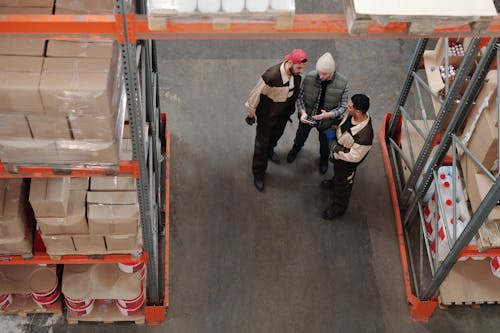The logistics surrounding fresh and perishable goods pose distinctive challenges, particularly regarding maintaining food safety standards throughout the supply chain. Businesses operating in the e-commerce space grapple with specific obstacles when handling perishable items, necessitating stringent measures to ensure food safety from the producer to the consumer’s doorstep. Let’s look at the challenges and solutions when it comes to food safety in e-commerce.
Challenges in Handling Perishable Goods
Managing the logistics of perishable products involves multifaceted challenges. Issues such as maintaining optimal storage conditions, adhering to temperature controls, minimizing transit time, and preserving product quality become paramount to prevent spoilage and maintain food safety.
Temperature-Controlled Supply Chain
The key to preserving perishable goods lies in a well-managed, temperature-controlled supply chain. Employing refrigeration and cold-chain logistics from the point of production to the final delivery location ensures that fresh items remain within the stipulated temperature range, mitigating the risk of spoilage.
Stringent Packaging and Labeling
A critical aspect of ensuring food safety in e-commerce logistics is the packaging and labeling of perishable items. Packaging that is designed to maintain freshness and prevent contamination, coupled with accurate and detailed labeling displaying expiration dates and handling instructions, is pivotal in maintaining product integrity.
Efficient Last-Mile Delivery
Efficient last-mile delivery is crucial to preserving food safety. Quick and reliable transportation modes and route optimization are vital to minimize the time perishable goods spend in transit, ensuring they reach consumers while still fresh and safe for consumption.
Technology and Monitoring Systems
Leveraging advanced technology and monitoring systems is instrumental in guaranteeing food safety. IoT-enabled sensors and real-time monitoring tools provide visibility into temperature fluctuations and potential deviations, enabling proactive interventions to maintain product quality.
Regulatory Compliance and Standards
Compliance with food safety regulations and industry standards is non-negotiable. E-commerce businesses handling perishable goods must adhere to stringent regulations, including proper sanitation practices, employee training, and regular audits to ensure adherence to safety protocols.

Consumer Education and Transparency
Educating consumers about the importance of proper handling and storage of perishable goods is crucial. Providing transparent information about product handling, including recommended storage conditions and shelf-life upon delivery, empowers consumers to maintain food safety standards at home.
Future of E-commerce Food Safety
As the e-commerce landscape evolves, continuous innovation in logistics and technology will play a pivotal role in enhancing food safety. Implementing novel solutions such as blockchain for traceability and AI-powered analytics will further revolutionize the management of perishable goods in the digital marketplace.
Businesses seeking superior e-commerce shipping in New Jersey can rely on 3PL Prep’s prowess. With a comprehensive range of services—from multi-channel order fulfillment to cutting-edge software solutions and efficient warehouse services—businesses can optimize their logistics. Embrace 3PL Prep’s expertise for swift, reliable, and secure deliveries, ensuring customer satisfaction and business expansion.








